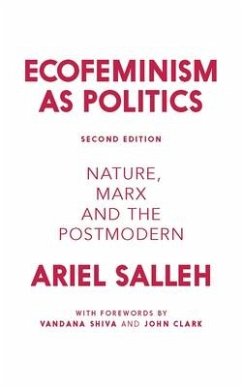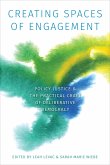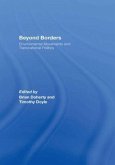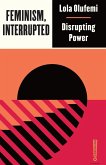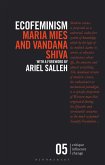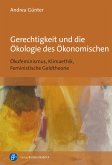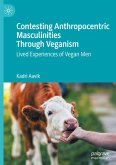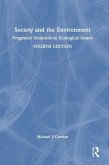Ecofeminism as Politics is now a classic, being the firstwork to offer a joined-up framework for green, socialist, feminist andpostcolonial thinking, showing how these have been held back by conceptual confusionsover gender. Originally published in 1997, it argues that ecofeminism reachesbeyond contemporary social movement ideologies and practices, by prefiguring apolitical synthesis of four-revolutions-in-one: ecology is feminism issocialism is postcolonial struggle. Ariel Salleh addresses discourses on class,science, the body, culture and nature, and her innovative reading of Marxconverges the philosophy of internal relations with the organic materiality ofeveryday life.
This new edition features forewords by Indian ecofeministVandana Shiva and US philosopher John Clark, a new introduction, and a recentconversation between Salleh and younger scholar activists.
This new edition features forewords by Indian ecofeministVandana Shiva and US philosopher John Clark, a new introduction, and a recentconversation between Salleh and younger scholar activists.
'The combination of eco-socialist, feminist and decolonial perspectives is analytically and politically thrilling. Ecofeminism as Politics offers an integrative understanding of our world, its multiple processes and crises, and possibilities for change.'
Ulrich Brand, political scientist, University of Vienna, and co-author of Theorizing the Imperial Mode of Living
'Neoliberalism has not eliminated poverty, nor discrimination of women, nor exploitation of the Earth; neither economists, politicians, nor theoreticians know a way out. Marxists ignore both nature's and women's contribution to the production of wealth, but as ecofeminists show, this is the lost key to building Another World.'
Maria Mies, ecofeminist activist and author of Patriarchy and Accumulation on a World Scale
'One of the most original and important thinkers in the international political ecology field; Ariel Salleh unveils the blind spot at the root of contemporary ecological and social crises and her lucid call for an 'embodied materialism' enlightens like no other framework I know.'
Arturo Escobar, anthropologist, University of North Carolina at Chapel Hill, and author of Designs for the Pluriverse
'This challenge to feminists, Marxists, and environmentalists, is sustained by a deep knowledge of struggles on the ground by women's, worker's, indigenous, and ecological groups. As integrative political actions are called for, their effectiveness depends on multi-dimensional theory; and here is Salleh's contribution.'
Lau Kin Chi, Cultural Studies, Lingnan University, Hong Kong, and founding member of the Global University for Sustainability
'Ecofeminism as Politics makes a powerful critique of both anthropocentrism and the androcentric thinking that permeates scholarship and activist discourses on the Left. Its social movement synthesis is an essential read for those seeking solutions to our deepening systemic crises.'
Jackie Smith, Sociology, University of Pittsburgh, and editor of the Journal of World-Systems Research
'Ariel Salleh's explanation of how "environmental struggle is socialist struggle is feminist struggle" sets the standard for intersectional study of the crises we face in nature, economy and society - from global climate to household. In her praxis epistemology and labours for repair of the humanity-nature metabolism, we find the most passionate, humbling truths.'
Patrick Bond, political economist, University of Witwatersrand School of Governance, South Africa
'Ecofeminism as Politics has pioneered the integration of social movement debates, and its dialectical approach viewing these concerns as internally related is pathbreaking. Ariel Salleh is a must-read authority on how to challenge capitalism in theory and as practice in the twenty-first century'.
Adam David Morton, University of Sydney, author of Revolution and State in Modern Mexico
'A powerful work of scholarship that will continue to shape our thinking, debates, and actions concerning inequalities, ecology, and justice for generations to come.'
Journal of World-Systems Research
Praise for the First Edition:
'I place Ariel Salleh's scholarship in the front rank with the work of other socialist ecofeminists such as Vandana Shiva or ecofeminists generally like Rosemary Ruether and Susan Griffin.'
Max Oelschlaeger, philosopher, author of Caring for Creation and editor of Postmodern Environmental Ethics
'In a feisty attack on the view of feminism and environmentalism as single issue, disconnected movements, Ariel Salleh convincingly argues that ecofeminist politics will be the strongest force in the world against environmental depredation, economic exploitation and cultural globalisation.'
Joan Martinez-Alier, editor of Ecologica Politica and author of Ecological Economics
Ulrich Brand, political scientist, University of Vienna, and co-author of Theorizing the Imperial Mode of Living
'Neoliberalism has not eliminated poverty, nor discrimination of women, nor exploitation of the Earth; neither economists, politicians, nor theoreticians know a way out. Marxists ignore both nature's and women's contribution to the production of wealth, but as ecofeminists show, this is the lost key to building Another World.'
Maria Mies, ecofeminist activist and author of Patriarchy and Accumulation on a World Scale
'One of the most original and important thinkers in the international political ecology field; Ariel Salleh unveils the blind spot at the root of contemporary ecological and social crises and her lucid call for an 'embodied materialism' enlightens like no other framework I know.'
Arturo Escobar, anthropologist, University of North Carolina at Chapel Hill, and author of Designs for the Pluriverse
'This challenge to feminists, Marxists, and environmentalists, is sustained by a deep knowledge of struggles on the ground by women's, worker's, indigenous, and ecological groups. As integrative political actions are called for, their effectiveness depends on multi-dimensional theory; and here is Salleh's contribution.'
Lau Kin Chi, Cultural Studies, Lingnan University, Hong Kong, and founding member of the Global University for Sustainability
'Ecofeminism as Politics makes a powerful critique of both anthropocentrism and the androcentric thinking that permeates scholarship and activist discourses on the Left. Its social movement synthesis is an essential read for those seeking solutions to our deepening systemic crises.'
Jackie Smith, Sociology, University of Pittsburgh, and editor of the Journal of World-Systems Research
'Ariel Salleh's explanation of how "environmental struggle is socialist struggle is feminist struggle" sets the standard for intersectional study of the crises we face in nature, economy and society - from global climate to household. In her praxis epistemology and labours for repair of the humanity-nature metabolism, we find the most passionate, humbling truths.'
Patrick Bond, political economist, University of Witwatersrand School of Governance, South Africa
'Ecofeminism as Politics has pioneered the integration of social movement debates, and its dialectical approach viewing these concerns as internally related is pathbreaking. Ariel Salleh is a must-read authority on how to challenge capitalism in theory and as practice in the twenty-first century'.
Adam David Morton, University of Sydney, author of Revolution and State in Modern Mexico
'A powerful work of scholarship that will continue to shape our thinking, debates, and actions concerning inequalities, ecology, and justice for generations to come.'
Journal of World-Systems Research
Praise for the First Edition:
'I place Ariel Salleh's scholarship in the front rank with the work of other socialist ecofeminists such as Vandana Shiva or ecofeminists generally like Rosemary Ruether and Susan Griffin.'
Max Oelschlaeger, philosopher, author of Caring for Creation and editor of Postmodern Environmental Ethics
'In a feisty attack on the view of feminism and environmentalism as single issue, disconnected movements, Ariel Salleh convincingly argues that ecofeminist politics will be the strongest force in the world against environmental depredation, economic exploitation and cultural globalisation.'
Joan Martinez-Alier, editor of Ecologica Politica and author of Ecological Economics
